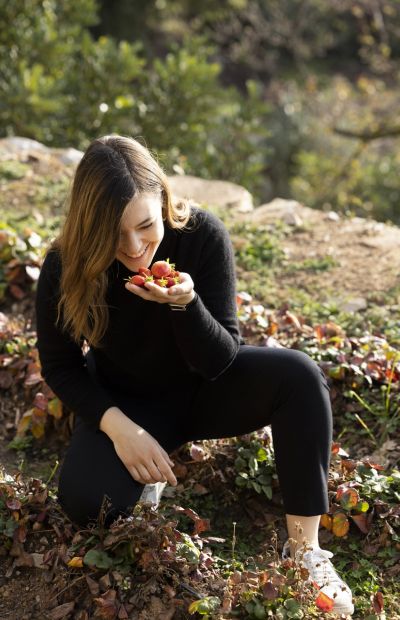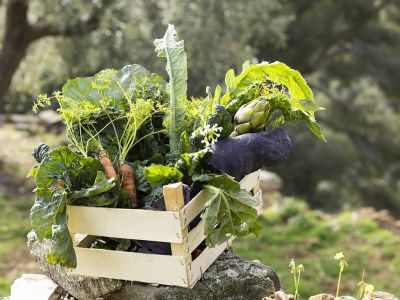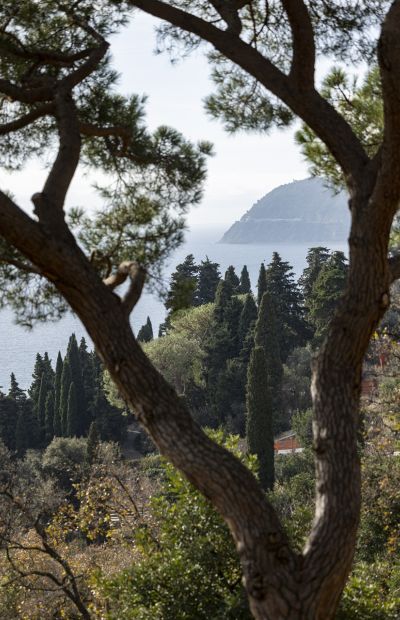Orto Rampante
The Orto Rampante is an organic farm that develops on the land adjacent to Villa della Pergola, a project that is both an act of resistance and resilience, a common thread that, in a respectful contemporary interpretation, brings us back to a deep connection with the land that nourishes us.
The adjective "rampant" represents the fascinating typical conformation of the Ligurian hills, with the characteristic bands supported by dry stone walls, symbol of heroic agriculture and emblem of the history and tradition of these places. Part of this land, in the past, was owned by the writer and painter Carlo Levi, famous for the novel-exposé "Christ Stopped at Eboli". Levi chose Alassio as his summer residence between 1929 and 1975. Here he drew inspiration to paint landscapes and carob trees. Among the friends who often came to visit him there was also Italo Calvino who every year climbed here and had a portrait painted by his friend.
An impressive recovery work of this area, abandoned for more than half a century, has been carried out in recent years. The dry stone walls have been rebuilt, the olive groves have been restored and the land has been cleared and put into production.
The Orto Rampante supplies the Nove Restaurant and Villa della Pergola with plant products in quantity, allowing the supply of precious raw materials at real 0 cm, fully reflecting the richness and variety of the territory, fortunate for its position and conformation.
The vegetable varieties are grown in accordance with the needs of the Nove restaurant and Villa della Pergola. Based on what has been handed down by the farmers of the area, preference is given to the typical products of the area including the big four of the Albenga plain: trumpet courgettes, beef heart tomatoes, prickly artichokes and purple asparagus. A space is intended for experimentation, to find and cultivate the varieties that are able to give their best in these lands. A passion for the territory that naturally drives its conservation.
Renzo Piano's RPBW project will see the construction of three greenhouses on these lands: the desire to decline the concept of the traditional greenhouse in an innovative way. The objective is to recover and enhance the area with an innovative agricultural and sustainable project, integrating scientific research, cultural events, teaching, bio-agriculture, zero kilometer hospitality and catering in the same place in the name of safeguarding and maintaining traditional crops.





